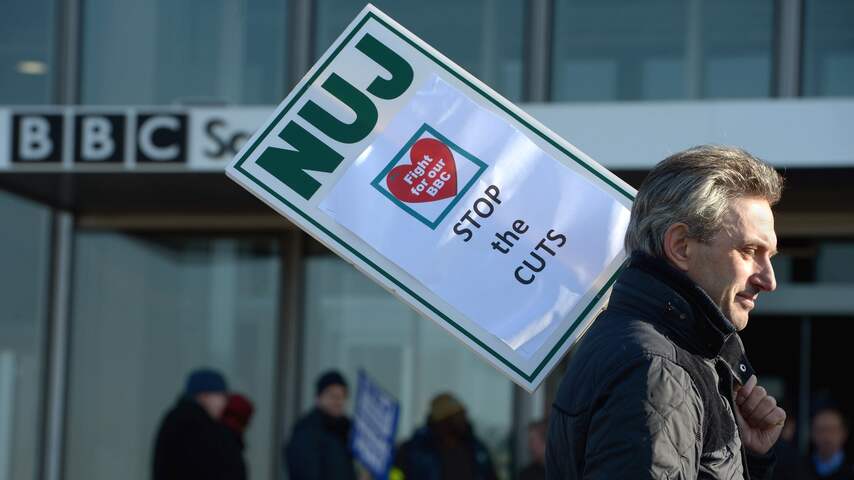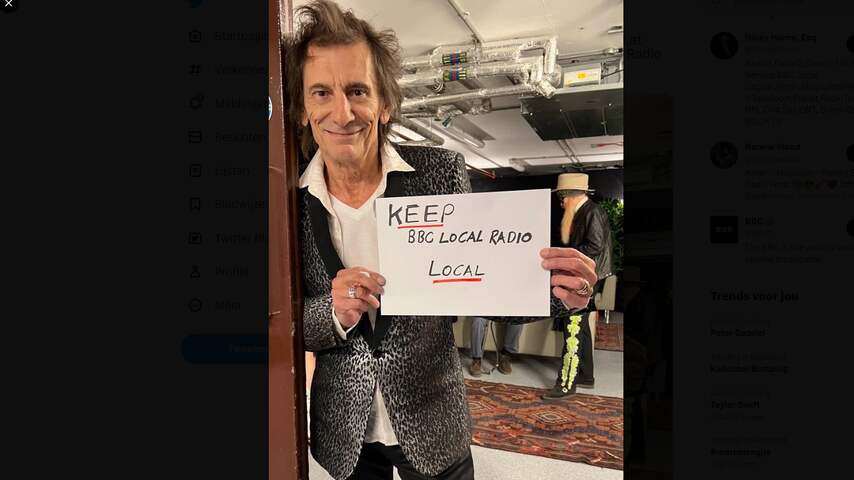BBC journalists have been on strike for 48 hours since this morning. The UK public broadcaster wants to make major cuts to BBC Local Radio’s local radio stations. And it will cost jobs.
The 39 local radio stations that fall under the BBC are to share or merge more programs. This means that many people could lose their jobs. Some employees even had to apply for their own jobs. Several local radio hosts have already announced their departure – sometimes involuntary – after years of service.
Austerity plans led to protests and a first strike on March 15. Then, employees of the local broadcaster who are members of the British journalists’ union NUJ stopped working. After that, the BBC caved in a bit, but it wasn’t enough for the union.
Employees of local radio, regional television and online services in the UK are therefore once again on strike. In total, there are about a thousand employees.

“Local information is vital”
“Many of our members who have had to reapply for jobs and have been threatened with dismissal have had a very difficult time,” says Paul Siegert, Head of Broadcasters at NUJ.
“Local information is vital. Not only to inform people, but also because it binds communities. Also, there are people who do not have online access. They lose the trusted presenters who are become their friends.”
Local radio is cheap to make, according to Siegert. “We believe the BBC can therefore easily resolve this dispute.” The BBC said it would continue to speak to the union. But for the moment, these negotiations are at an impasse.

Scandals with Lineker and CEO Sharp
The NUJ says the BBC has a bad reputation with its journalists. Of NUJ members who work at the company, 93% said last month they no longer had confidence in management. These results were announced last week.
Journalists are unhappy with the handling of several recent scandals, such as with Gary Lineker. The football presenter Game of the day had to temporarily withdraw from the BBC after criticizing the UK government’s asylum policy on Twitter. The broadcaster quickly came back from that.
Also, the issue is about Richard Sharp. The BBC chairman resigned in April when it emerged he had helped Prime Minister Boris Johnson secure a loan shortly before his appointment. In doing so, he violated the rules of the broadcaster. An investigation of NUJ union members ultimately led to Sharp’s resignation. More than a thousand members had urged him to leave.
BBC reporters won’t return to work until Friday. Unless the union and the broadcaster can find a compromise sooner.

“Infuriatingly humble social media ninja. Devoted travel junkie. Student. Avid internet lover.”
 DodoFinance Breaking News Made For You!
DodoFinance Breaking News Made For You!